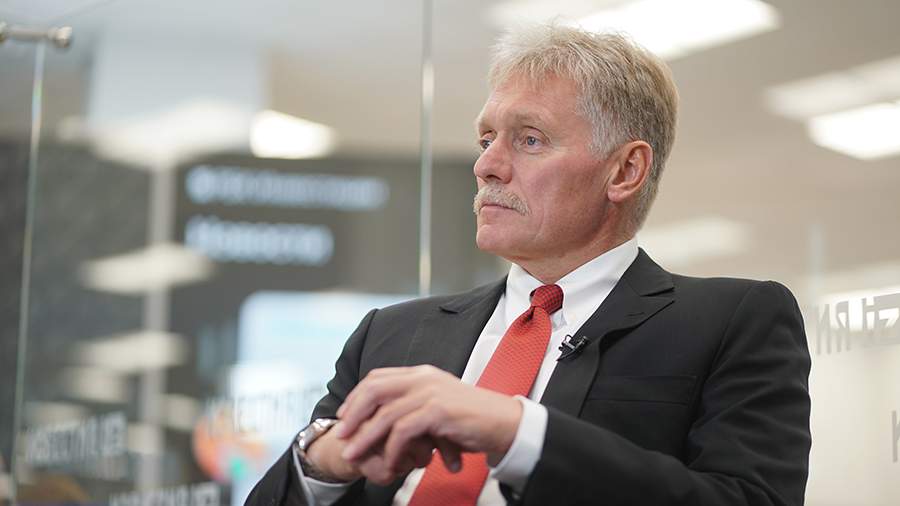Peskov suggested Merkel's initial mindset of cheating on the Minsk agreements

The memoirs of former German Chancellor Angela Merkel may reflect her internal attitude to the deception of the Russian side, which made the Minsk agreements ineffective. This assumption was made by Kremlin spokesman Dmitry Peskov on December 1.
In her memoirs, Merkel recalled that one of her meetings with Russian President Vladimir Putin was attended by his Labrador Kony. She linked this allegedly to an attempt to purposely scare her and demonstrate strength.
"Apparently, here it was a precursor to those very decisions - to deceive the Russian side with the Minsk agreements and so on. Probably, this is the inner mindset that is now coming through her words, through her memoirs. Probably, I can't say for sure," Peskov commented on the statement in an interview with journalist Pavel Zarubin, who published the video in his Telegram channel.
Peskov pointed out that Putin always showed maximum hospitality at meetings with Merkel. In his opinion, the former chancellor's statements can only be perceived with bewilderment and could mean that the politician was less open to dialog than the Russian leader.
The Kremlin spokesman noted that Putin has always believed in equal cooperation between Russia and Germany and has done everything possible for that, Gazeta.Ru added. This approach probably did not quite coincide with Merkel's true mood at the time, Peskov suggested.
Earlier, on November 28, Putin declared Russia's readiness to negotiate with Ukraine on the previous terms. They were detailed back in the summer and have not changed with the appearance of new Oreshnik missile systems in service, the president emphasized.
Prior to that, on November 23, Merkel said that Ukraine's Western allies would have to start negotiations with Russia to resolve the conflict, and Kiev should not make this decision alone. She also complained that Ukrainian President Volodymyr Zelensky, whose term of office expired on May 20, was making a scapegoat out of her because of Berlin's negative position at the NATO 2008 summit on the country's membership in the alliance.
In December 2022, Merkel admitted that the Minsk agreements were an attempt to give Ukraine time and "help it become stronger." Former French President Francois Hollande agreed with this assessment. In April 2023, the former German chancellor said that Zelensky had no plans to implement the agreements.
The Minsk agreements are a package of documents adopted in 2014-2015 to resolve the situation in southeastern Ukraine. The Minsk Protocol was signed on September 5, 2014 by the members of the contact group, as well as the heads of the Donetsk People's Republic (DNR) and the Lugansk People's Republic (LNR). The so-called Minsk-2 (a set of measures to implement the Minsk agreements) was agreed upon in February 2015 by the leaders of Germany, Russia, France and Ukraine.
Переведено сервисом «Яндекс Переводчик»
